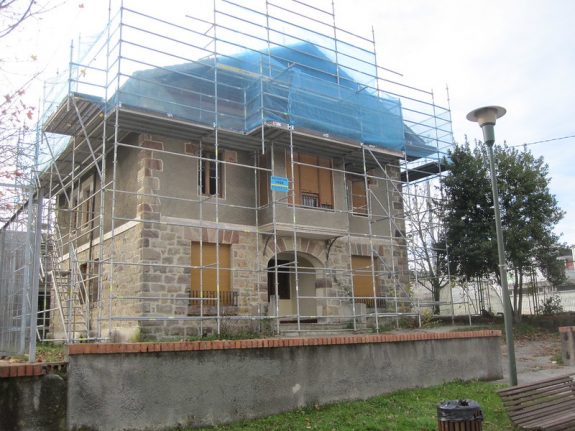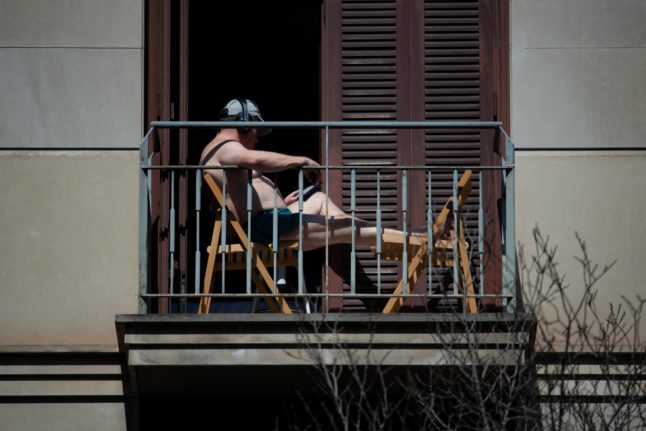In March 2018 the Spanish Government launched a four-year Housing Plan to address some of the issues the country’s 47 million inhabitants face when it comes to their homes.
The ten-point plan covers a wide range of housing support, from help to those who can’t afford their rent to allowing young people to access the housing market.
But this Royal Decree also includes financial aid for people in Spain in need of some home improvements.
Spain’s government has allocated between €350 to €370 million of its annual budget to this project, which due to the coronavirus pandemic has been extended from the end of 2021 until December 31st 2022.
What kind of home improvements can I get a grant for?
There are three clauses in Spain’s 2018 Housing Plan which deal with the renovation of properties:
For energy efficiency reasons (Programa 5: Fomento de la mejora de la eficiencia energética y sostenibilidad en viviendas)
For conservation, safety and access reasons (Programa 6: Fomento de la conservación, de la mejora de la seguridad de utilización y de las accesibilidad en viviendas)
For urban/rural renovation or renewal reasons (Programa 7: Fomento de la regeneración y renovación urbana y rural)
In terms of energy efficiency grants, these include covering the cost of heating and air conditioning, new windows, home insulation, electrical installations and sound proofing.
For conservation, safety and access reasons, the Spanish government doesn’t provide any specific information but according to their website it can be understood as being grants for renovation needed to improve the standards of living for residents of a dwelling ie a lift or wheelchair ramp in a building where there are elderly residents.
For urban/rural renovation or renewal reasons, the Spanish government states that it includes financing for “rehabilitation work of residential buildings and individual dwellings, as well as works for the urbanisation of adjacent public spaces and construction of buildings and dwellings that replace others that have previously been demolished in the same area”.
This means that whoever buys a derelict building in Spain can get a grant for its renovation.
It’s also worth noting that the housing improvements which you can apply for can be for either exterior or interior.
 Photo: kum111/Flickr
Photo: kum111/Flickr
Can foreigners in Spain get a grant?
According to the 2018 Housing Plan, foreign nationals can apply for a grant if they “are legally resident in Spain”.
This means that non-resident second home owners in Spain cannot apply.
What other requirements are there?
Home owners in Spain with or without a mortgage can apply, as can renters (although this should only be done if the landlord agrees).
Most property types are eligible, from detached to terraced houses and also houses in residential communities.
If you live in a building with other flats, it’s worth noting that housing communities can make joint requests for grants for blocks of flats or apartments.
For an entire building to be eligible, at least 50 percent of the properties must be first homes and not short-term holiday lets.
The same applies to individual grant applications – the property must be your primary residence for at least one year before applying.
Another requirement is that the property has to have been built and finished before 1996.
Home improvements on individual properties can’t take longer than 12 months once your municipality has issued the licence.
For blocks of flat the deadline is extended to 16 months or 18 months if they’re made up of more than 40 properties.
The company or builder must supply a legal invoice for the project to be eligible for a grant.
How much money can the grant be worth?
If it’s a house, the highest grant amount is €12,000, or 40 percent of the cost. For flats or apartments, the grant limit is €8,000.
If the grant is for a blocks of flats the amount is usually determined by the number of flats but still generally can’t surpass 40 percent of the total cost.
Up to €1,000 extra can be requested for improvements to properties that are registered as being of “cultural interest”.
Some regions also offer grants of up to 25 percent of the total renovation price for those under 35, especially in municipalities with fewer than 5,000 inhabitants that are looking for young residents.
However, the grant can cover 75 percent of the cost for applicants with very low incomes (lower than 3 times the IPREM indicator) or when the project is to improve access for disabled or elderly people (65 years old and over).
How do I apply for a grant?
As with many official matters in Spain, each region decides the process for applying for home improvement grants, so your first port of call should be their regional website. Look for information on “convocatorias” (grant application announcements) and their deadlines.
As a general rule you will need to provide proof that the property was built and completed before 1996, which you can get from Spain’s land registry (registro catastral).
You will also generally need to attach a technical report to your application which is dated prior to your grant request and where it is clearly stated that the renovations works to be carried out were to improve energy efficiency, access, safety, building conservation etc and tangible proof that these improvements have been carried out.
READ MORE:
- Buying a property in Spain: What to do and what to avoid
- Property in Spain: Why choose Valencia?
- Spanish mortgages: Ten things foreigners should know before getting one
.



 Please whitelist us to continue reading.
Please whitelist us to continue reading.
Member comments